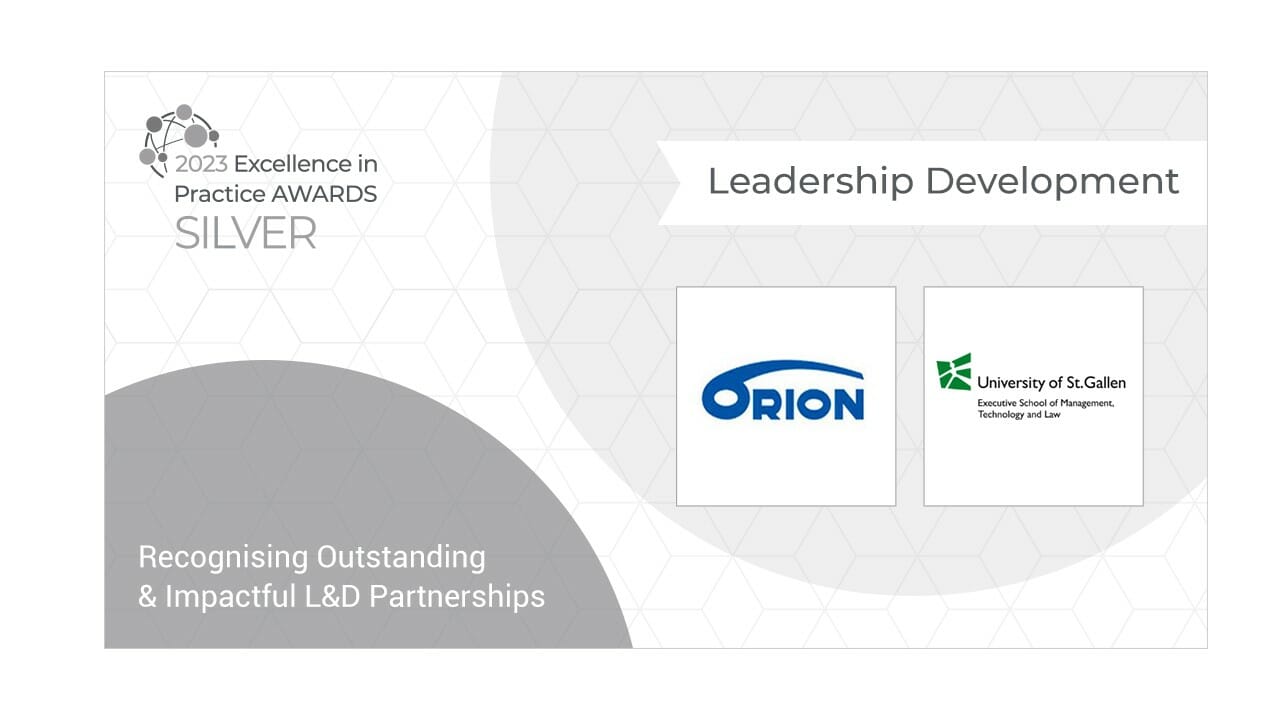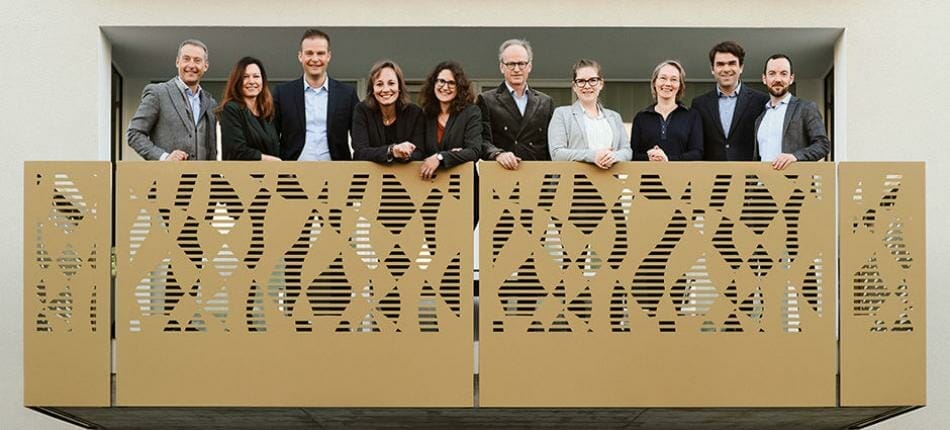
The Custom Team of the Executive School of the University of St. Gallen wins the Silver Award of the European Foundation for Management Development (EFMD).
The 2023 «Excellence in Practice» competition awards outstanding and impactful learning and development partnerships in the field of executive education. The award demonstrates the strength and potential of the HSG to further build executive education as an important pillar. The jury of the more than 50 cases considers particularly the sustainable business impacted generated by the program, both for individual leaders as well as for the organization.
The “Horizon” program for the largest Finish pharmaceutical company Orion has substantially boosted the company’s growth and innovation ambition visibly underlining HSG’s claim “From Insight to Impact”. It shows the quality and competitiveness of HSG’s executive education, also at an international level. The 4-module program at different international locations including India had the objective to develop Orion’s leaders to become “ambidextrous leaders” making a real difference to the profitable company growth.
The award ceremony will be held at the annual EFMD conference in St. Gallen in October. EFMD is the largest international network association in the field of management development. The Custom Team has already won a silver award (with Porsche) and gold award (with Lonza) in the past years.
More information:
What do we do?
St. Gallen University is uniquely at the forefront of research in each major industry. At the same time the Custom Programs team equips your company and your people with exactly the right insights, consulting and programs that deliver sustainable business outcomes.
The approach is business outcome focused, pragmatic, didactic and transfers deep expertise to your people for a higher return on investment than traditional consulting. We share the customer: case studies, feedback and experience.
Our Offer
C-Suite and Business Leader Insights Hub
C-Suite and Business Leaders lead the Swiss economy in key challenges.
The University of St. Gallen is uniquely at the forefront of research with every major industry. At the same time, the Custom Programmes team equips your business and your people with just the right insights, advice and programmes that deliver sustainable business results. These insights are shared: Case studies, white papers, research, books that equip the C-suite and the HR leaders we work with for sustainable business change.
We provide the C-suite with proven sparring partners who have connected the dots to increase the speed of board decision-making and change execution. In addition, ES-HSG can seek, align and orchestrate internal and external ecosystem partners to master the implementation of the transformation.
Who we are – Insight to Impact
We help you transform on a large scale.
We equip your people and your business for SUSTAINABLE business transformation to move from INSIGHT to IMPACT. 70% of transformation programmes fail! Yet it is predicted that £2.3 trillion will be spent on transformation by 2023 (IDC 2019).
Our team develops programmes where talent learns, applies and transforms at the same time. This scales the company’s capabilities and increases the success of the transformation.
We are a multilingual and global team for customised programmes. We combine the power of 41 institutes and competence centres as well as partnerships in our delivery network. The University is pioneering research and application to help you achieve impactful change at individual, team and organisational levels.
 Mereme Bajraktari
Mereme Bajraktari Mereme Bajraktari Programme Manager Custom Programmes
 Tanja Casutt
Tanja CasuttTanja Casutt Programme Manager Custom Programmes
 Annette Collisy-Lenzen
Annette Collisy-LenzenAnnette Collisy-Lenzen Director Custom Programmes
 Ator Dawood
Ator DawoodAtor Dawood Programme Assistant Custom Programmes
 Belinda Helfenberger
Belinda HelfenbergerBelinda Helfenberger Programme Manager Custom Programmes
 Barbara Hoffmann
Barbara HoffmannBarbara Hoffmann Programme Manager Custom Programmes
 Nathalie Lutz
Nathalie LutzNathalie Lutz Programme Assistant Custom Programmes
 Daniel Michels
Daniel MichelsDaniel Michels Director Custom Programmes
 Dr. Kiyan Nouchirvani
Dr. Kiyan NouchirvaniDr. Kiyan Nouchirvani Director, Head Custom Programmes
 David O’Connor
David O’ConnorDavid O’Connor Director Custom Programmes
 Dr. Mohamad Razaghi
Dr. Mohamad RazaghiDr. Mohamad Razaghi Senior Specialist, impact & design of Custom Programmes
 Christian Sauerbrey
Christian SauerbreyChristian Sauerbrey Director Custom Programmes
 Dr. Simon Stöpfgeshoff
Dr. Simon StöpfgeshoffDr. Simon Stöpfgeshoff Director Custom Programmes
 Lena Völler
Lena VöllerLena Völler Student Assistant Custom Programmes
 Elena Vömel
Elena Vömel



